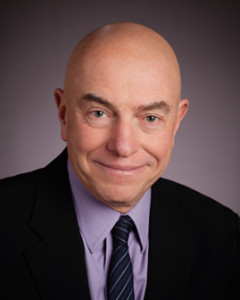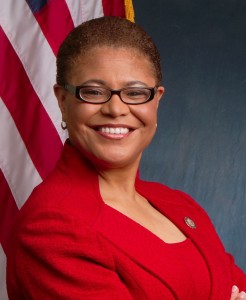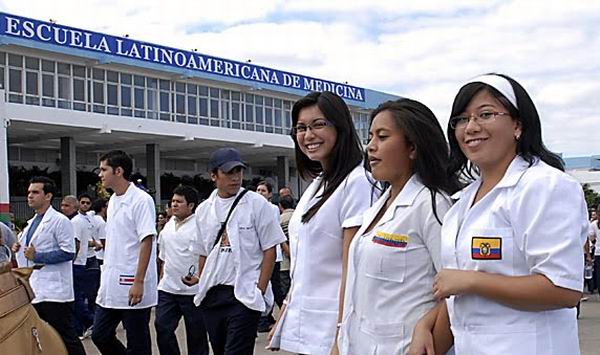
Cancer vaccine and a medication that helps diabetic patients: Cuban innovations in health DO matter
WASHINGTON, D.C. – A therapeutic anti-cancer vaccine and a medication that has proven effective in preventing limb amputations among diabetic patients, both produced in Cuba and neither currently available in the U.S., were the focus of a briefing held last week in Washington, D.C. by MEDICC, Medical Education Cooperation with Cuba, a non-profit organization that “works towards better health and health equity by promoting cooperation among the U.S., Cuban and global health communities.”
Dr. Pierre M. LaRamée, MEDICC’S Executive Director, led off by mentioning important, yet little known (in the U.S.), advances in health care resulting from Cuban medical research and drug development that could substantially benefit U.S. patients. He kicked off his presentation by introducing the anti-cancer vaccine called CimaVax, which works through the immune system by slowing the growth of lung cancers, extending a patient’s life and improving their quality of life.

Fortunately, and as a result of the new Administration policy towards Cuba, the Roswell Park Cancer Institute in Buffalo, New York, has signed an agreement with its counterpart Cuban research institution, and obtained permission to begin U.S. clinical trials of CimaVax, according to FDA rules. The investigators at Roswell are especially interested because the vaccine’s mechanism may prove effective for numerous cancers other than lung.
The second medication discussed was Heberprot-P., which has proven effective in preventing 70% of limb amputations among diabetic patients, a severe consequence that afflicts some 70,000 individuals in the U.S. every year. It has been used effectively in more than 165,000 cases in some 20 countries, and it is undergoing clinical trials in five other countries and in Europe. Yet it is not available in the U.S., and it is not even being tested here – because of the embargo.
(A few years ago U.S. authorities allowed the subsidiary of a French pharmaceutical firm to conduct clinical trials, but would not extend the license to permit marketing the drug if the trials proved successful under FDA protocols. And no pharma firm in its right mind would spend the tens of millions of dollars needed to run a clinical trial without assurance that they could market the drug if approved under FDA tests.)
Present during the briefing titled “Why Cuba Innovation Matters to Our Health in the U.S.” were a bipartisan group of members of Congress, staffers, pharmaceutical industry representatives and some press.

Dr. LaRamée’s presentation was followed by remarks from Dr. Tatyana Guerrero-Pezzano, a 2010 graduate of Cuba’s Latin American School of Medicine (ELAM by its Spanish acronym), who described how she has put into practice her training in Cuba by treating under-served communities in Albuquerque, New Mexico. Since its founding in 1999, ELAM has graduated more than 25,000 doctors from over 80 countries, with all expenses paid, and with the strong focus on community medicine and primary family doctors that guide the Cuban health care system. Some 200 doctors from the U.S. have graduated from ELAM, following an agreement that was partly catalyzed by the Congressional Black Caucus. A growing number of them, like Dr. Guerrero-Pezzano, are already applying knowledge acquired in Cuba in the U.S., fulfilling a commitment they make when they enter their medical training on the island. MEDICC has a program to help many of these U.S. graduates prepare for their U.S. licensing exams, with a pass rate among participants of 95%.

Congresswomen Karen Bass and Barbara Lee, both from California, addressed the gathering and praised the work of MEDICC and that of ELAM, as well as the public health system in Cuba. Congresswoman Lee, in particular, indicated to us that efforts are underway to persuade the Obama administration to facilitate the testing of the diabetic drug in the U.S.
Gail Reed, a founder of MEDICC and the editor of MEDICC Review, finished the briefing by emphasizing how important it is for both countries to collaborate on public health issues.
“The U.S. can learn from Cuba, and Cuba can learn from the U.S.,” she said.
Ms. Reed also summarized some of the important actions that President Obama could take to enhance collaboration between the two countries on public health, as well as to help bring novel and promising Cuban pharmaceutical products for testing in the U.S. These measures include:
- Issue a general license to allow Cuban innovations, including both the therapeutic cancer vaccines, the diabetic foot medication, and others to be brought to the U.S. for strict FDA tests, as is the case with promising drugs from any other country. The licenses, however, must also assure the companies or institutions that they could market those medications if the tests prove successful.
- Issue a general license to allow U.S. pharmaceutical and medical equipment companies to carry out trials in collaboration with institutions in Cuba. Cuba has a public clinical trials registry, accredited by the World Health Organization, and significant experience in multi-center trials. This could help to evaluate medications faster, helping patients in both the U.S. and Cuba to gain access to them when they prove effective.
- Issue a general license to allow Americans to receive treatment in Cuba if they so desire, a right which is now denied under the embargo’s travel restrictions. This would, for example, allow diabetics facing the risk of amputation to receive treatment with Heberprot-P—of proven efficacy–even as the drug is tested under FDA protocols in the U.S., which would take years.
- Facilitate and encourage more exchanges between Cuban health institutions and their U.S. counterparts, such as the Centers for Disease Control, the Federal Emergency Management Administration, the Department of Health and Human Services. Both countries stand to benefit greatly from such exchanges in areas such as disaster relief, where Cuba has a demonstrably effective system, as well as in facing growing threats due to global warming, such as dengue fever, and new infectious threats such as SARS and Ebola.
In an article in Forbes Magazine in 2015, Bill Frist, a physician and former Republican Majority Leader in the Senate from Tennessee, wrote that “as we rapidly move toward normalization of relations with Cuba, we have much to learn from its effective primary care model, successfully implemented under severely constrained financial resources.” MEDICC is well poised to help facilitate collaboration that would make this possible.


